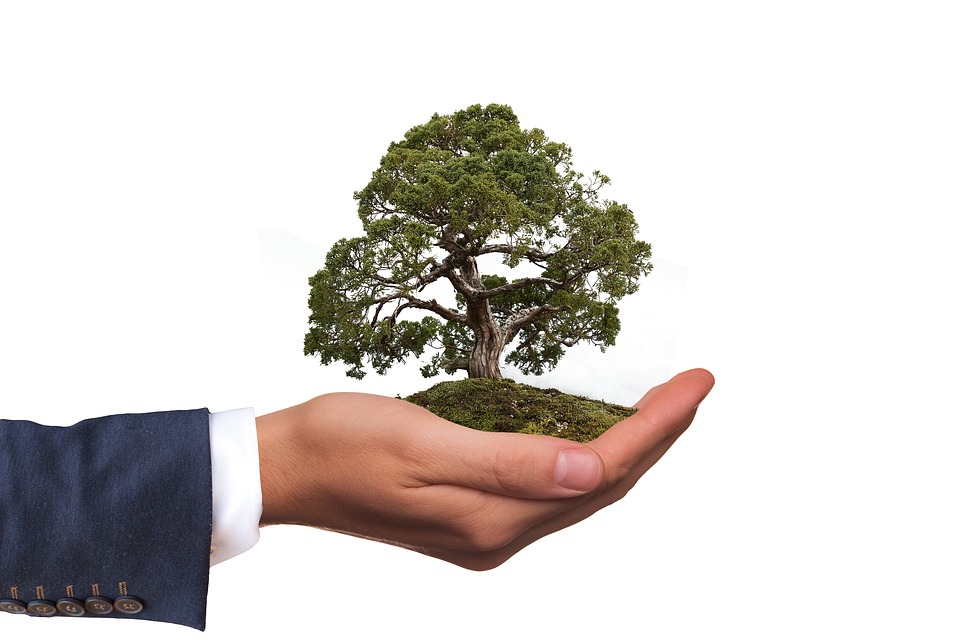

A new World Economic Forum (WEF) report identifies more than 65 use cases where blockchain can be applied to the world’s most-pressing environmental systems challenges, along with eight ‘game changers’ where the technology could fundamentally disrupt current systems and approaches.
“There has been a lot of hype about blockchain technology – in particular, its potential to transform how humans transact, which could fundamentally redefine how business, governments and society operate,” the World Economic Forum says.
“Despite this hype, it is still a nascent technology with considerable challenges that need to be overcome. As the technology matures and is applied across a wider set of sectors and systems, there is both a challenge and an opportunity to realise blockchain’s potential – not just for finance or industry, but for people and the planet.”
The report also highlights many of the current challenges that need to be addressed, outlines a set of principles for developing blockchain applications for the environment, and identifies the need for global platforms to incubate a responsible ecosystem.
Solutions that are particularly relevant across environmental applications tend to cluster around the following cross-cutting themes: enabling the transition to cleaner and more efficient decentralised systems; peer- to-peer trading of resources or permits; supply chain transparency and management; new financing models for environmental outcomes; and the realisation of non-financial value and natural capital.
“See-through” supply chains: blockchain can create undeniable (and potentially unavoidable) transparency in supply chains. Recording transactional data throughout the supply chain on a blockchain and establishing an immutable record of provenance (i.e. origin) offers the potential for full traceability of products from source to store. Providing such transparency creates an opportunity to optimise supply- and-demand management, build resilience and ultimately enable more sustainable production, logistics and consumer choice.
Decentralised and sustainable resource management: blockchain can underpin a transition to decentralised utility systems at scale. Platforms could collate distributed data on resources (e.g. household-level water and energy data from smart sensors) to end the current asymmetry of information that exists between stakeholders, enabling more informed – and even decentralised – decision-making regarding system design and management of resources. This could include peer-to-peer transactions, dynamic pricing and optimal demand-supply balancing.
Raising the trillions – new sources of sustainable finance: blockchain-enabled finance platforms could potentially revolutionise access to capital and unlock potential for new investors in projects that address environmental challenges – from retail-level investment in green infrastructure projects through to enabling blended finance or charitable donations for developing countries.
On a broader level, there is the potential for blockchain to facilitate a system shift from shareholder to stakeholder value, and to expand traditional financial capital accounting to also capture social and environmental capital. Collectively, these changes could help raise the trillions of dollars needed to finance a shift to low-carbon and environmentally sustainable economies. .
Incentivising circular economies: blockchain could fundamentally change the way in which materials and natural resources are valued and traded, incentivizsing individuals, companies and governments to unlock financial value from things that are currently wasted, discarded or treated as economically invaluable. This could drive widespread behaviour change and help to realise a truly circular economy.
Transforming carbon (and other environmental) markets: blockchain platforms could be harnessed to use cryptographic tokens with a tradable value to optimise existing market platforms for carbon (or other substances) and create new opportunities for carbon credit transactions.
Next-gen sustainability monitoring, reporting and verification: blockchain has the potential to transform both sustainability reporting and assurance, helping companies manage, demonstrate and improve their performance, while enabling consumers and investors to make better-informed decisions. This could drive a new wave of accountability and action, as this information filters up to board-level managers and provides them with a more complete picture for managing risk and reward profiles.
Automatic disaster preparedness and humanitarian relief: blockchain could underpin a new shared system for multiple parties involved in disaster preparedness and relief to improve the efficiency, effectiveness, coordination and trust of resources. An interoperable decentralised system could enable the sharing of information (e.g. individual relief activities transparent to all other parties within the distributed network) and rapid automated transactions via smart contracts. This could improve efficiencies in the immediate aftermath of disasters, which is the most critical time for limiting loss of life and other human impacts.
Earth-management platforms: new blockchain-enabled geospatial platforms, which enable a range of value-based transactions, are in the early stages of exploration and could monitor, manage and enable market mechanisms that protect the global environmental commons – from life on land to ocean health. Such applications are further away in terms of technical and logistical feasibility, but they remain exciting to contemplate.
Denver, Colorado, 24th February 2025, Chainwire
Denver, Colorado, 20th February 2025, Chainwire
Washington, D.C., 18th February 2025, Chainwire
Dubai, UAE, 27th January 2025, Chainwire
Those who enter the market at this time may be surprised to hear that Bitcoin…
George Town, Grand Cayman, 22nd November 2024, Chainwire